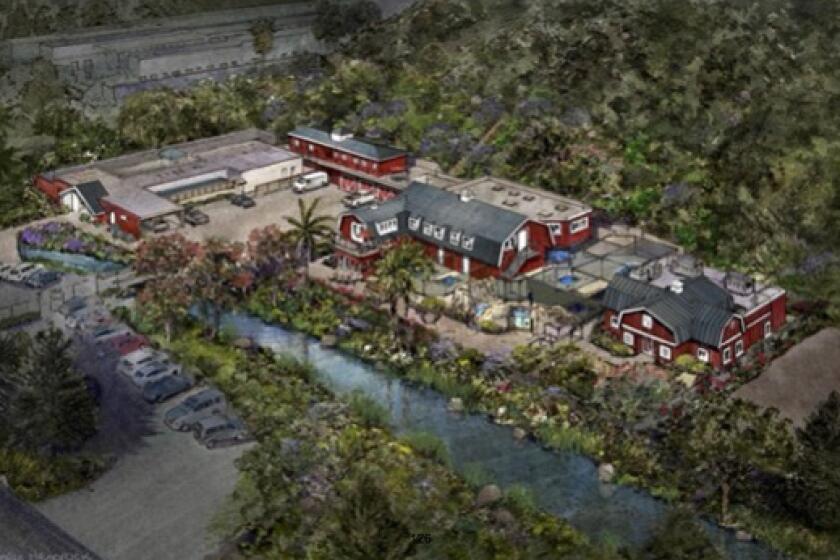Pacific Marine Mammal Center breaks ground on expansion project, eager to contribute to water conservation
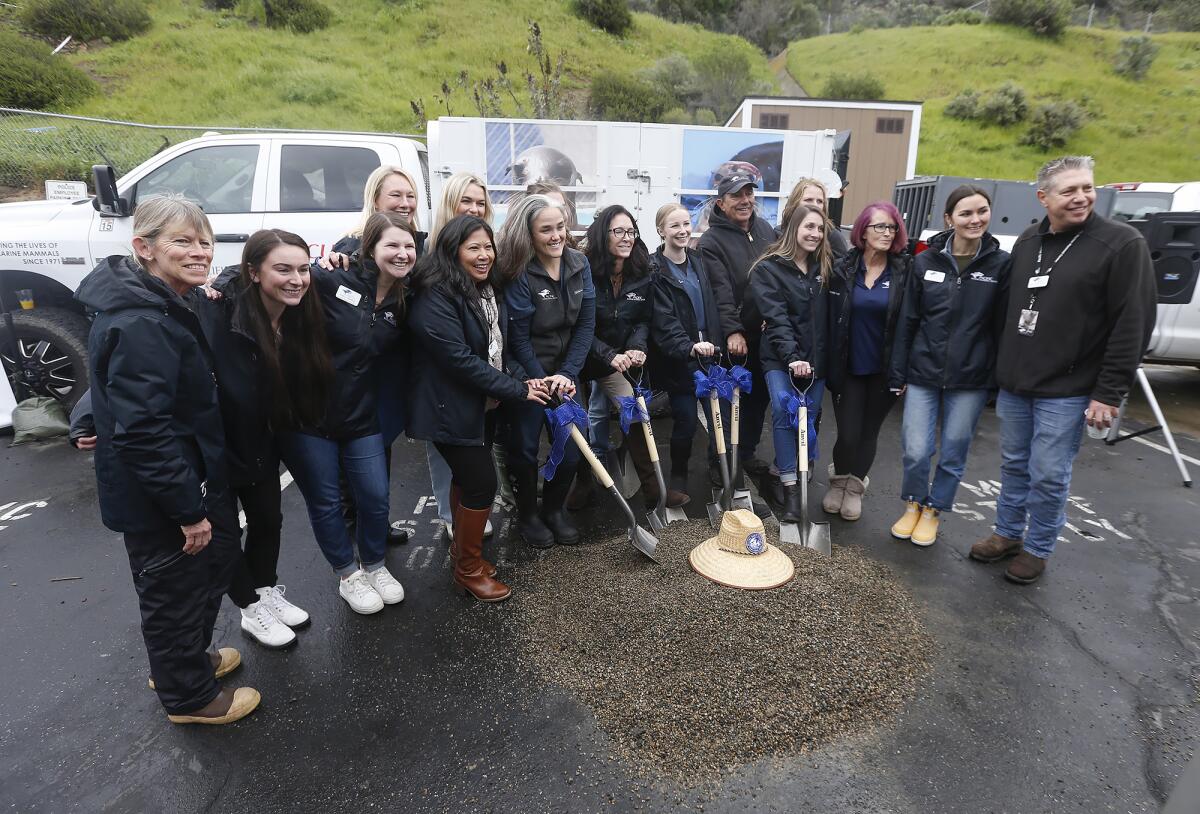
- Share via
Pacific Marine Mammal Center in Laguna Beach has broken ground on a $14-million expansion project that will enhance the center’s educational and patient treatment capabilities while making it a leader in water conservation.
The project, which is being referred to as “The Next Wave” expansion, will include a water reclamation system that organization officials say will allow the center to recycle up to 90% of the water it uses.
As the second largest water user in Laguna Beach, the gains in that area are expected to be significant. Once installed, the system could allow the center to save 15,000 gallons of water per day and approximately 5 million gallons of water annually.
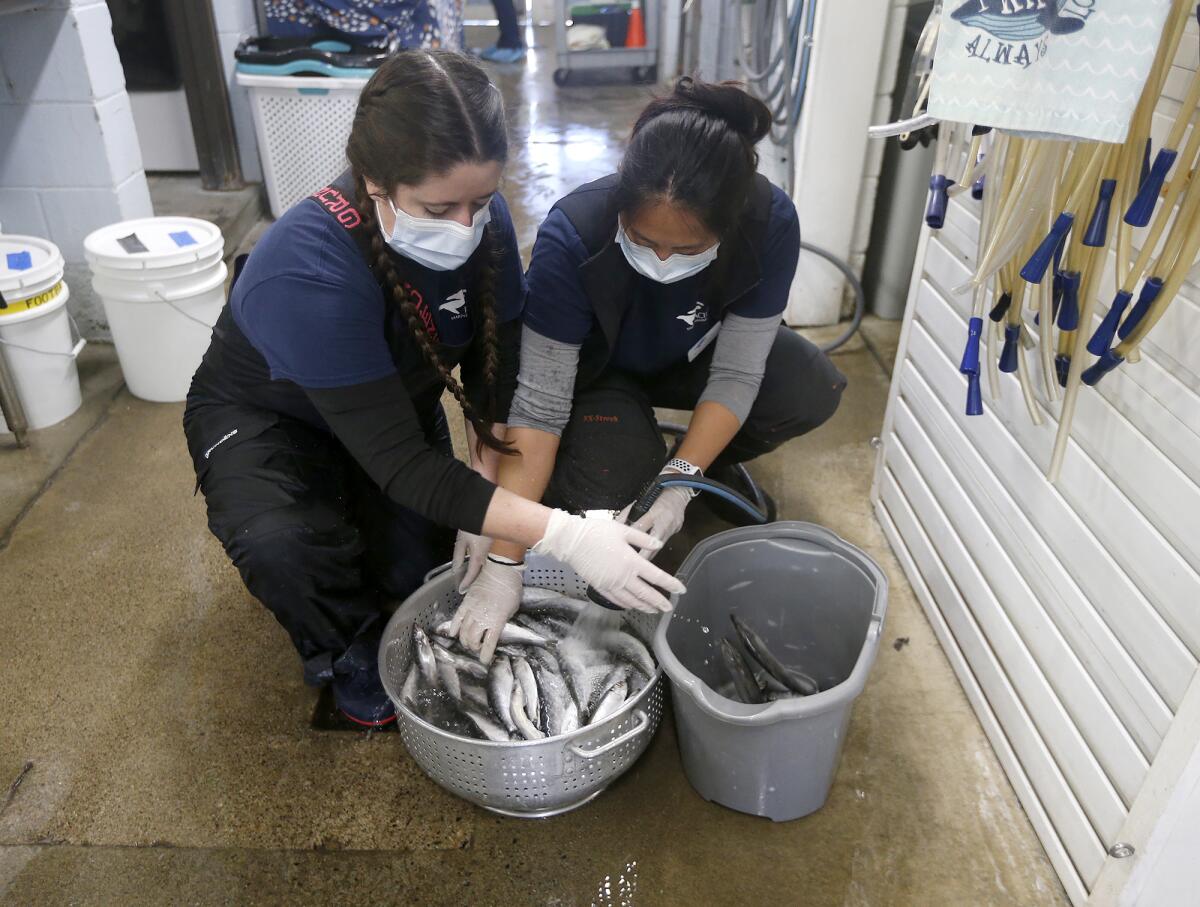
“What our facility is going to do is allow us to recycle upwards of 90% of the water that we use,” Glenn Gray, chief executive of Pacific Marine Mammal Center, told dignitaries at Wednesday’s groundbreaking event, to a round of applause. “To put that into context, that’s about 5 million gallons a year. … Seven years now, Laguna Beach has been the most water-wise city in America. No one’s going to touch Laguna Beach [in terms of water conservation] after this facility’s put in place.”
The expansion will also see the center take its number of pools from seven to 10, increasing its capacity for its seal and sea lion patients. With the arrival of an elephant seal on Thursday morning, Dr. Alissa Deming said the center currently has 23 patients. The center will be able to accommodate nearly tenfold that amount following construction, an increase in capacity from about 125 animals to close to 200.
The nonprofit, which consumes up to 17,000 gallons of water per day, has a plan to expand facilities and cut water use by up to 90%. Officials say the new reclamation system could make Laguna Beach a conservation leader.
“From 2013 to 2016, there was something called an unusual mortality event of the California sea lion pups, where there just wasn’t enough prey items around their nursery, like where they’re born in and off the Channel Islands,” Deming said. “That caused almost a three-to-fourfold influx of starving baby sea lions hitting the beach for a four-year period.
“During that time, we hit our capacity. We don’t want to compromise our standard of care, and we can’t crowd our animals because that can spread disease and cause issues with getting them better. … Back then, that’s what started getting us moving to the direction of we need more space to accommodate these years when we see these really high, elevated numbers of marine mammals stranding.”
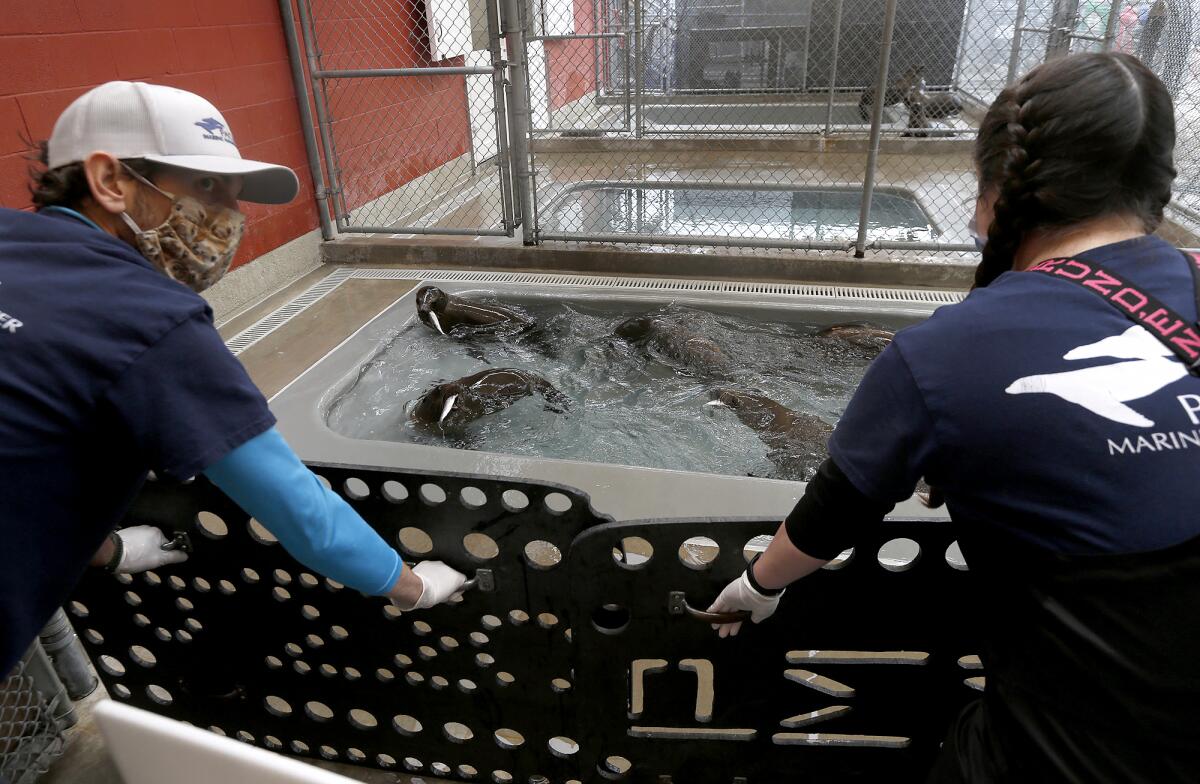
If members of the public see a stranded marine mammal, Deming urges them to keep their distance and to talk to a lifeguard or contact local response teams. Pacific Marine Mammal Center serves all of Orange County.
“Once they come back here, our veterinary team and our animal care supervisors will assess the animal,” Deming added. “They do a full physical exam, X-rays, if necessary. We always get blood work on them, … so we can see if they have infections or if they’re dehydrated, how their organs function — their liver, their kidneys, their electrolytes, all that stuff. Then every patient gets an individualized treatment plan.”
An estimated 35,000 students participate in education programs provided by the Pacific Marine Mammal Center each year. The expansion will see the space available to those programs doubled.
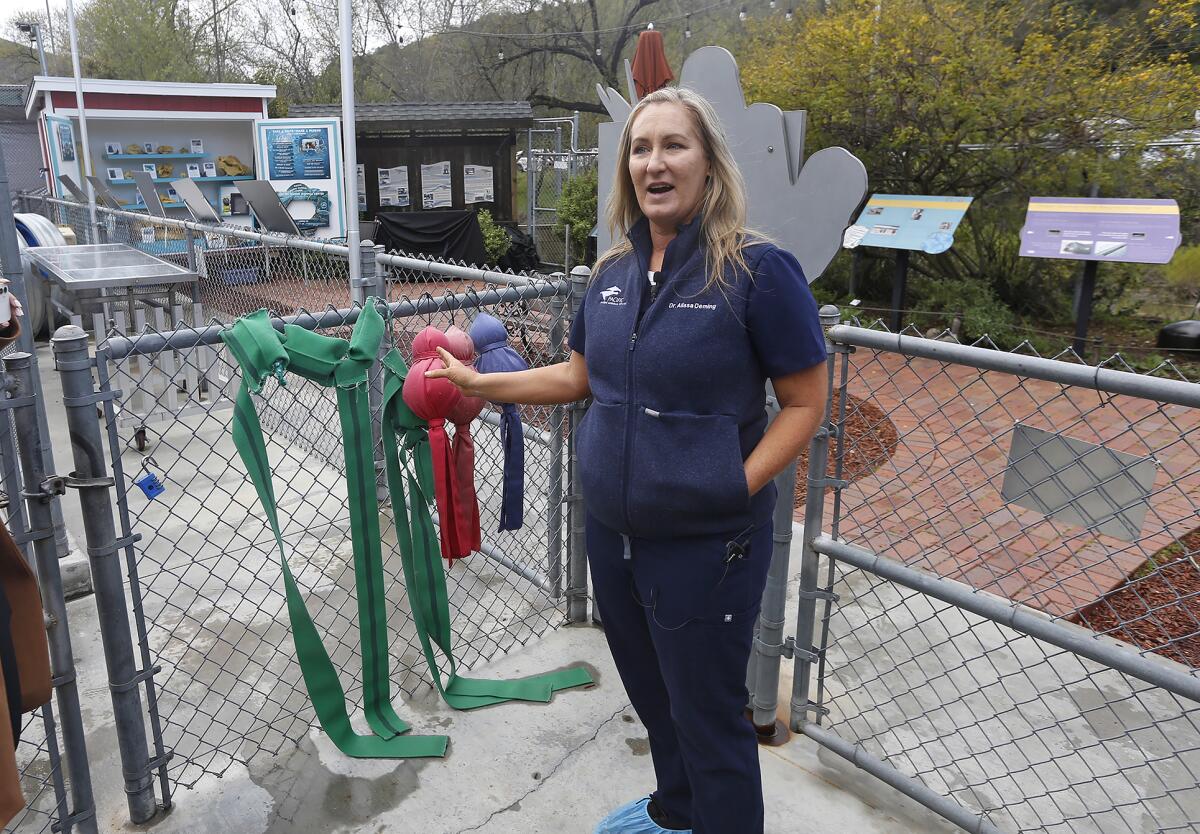
In addition to new pools and units, the center’s hospital will be adding a new treatment room for surgery, endoscopy, ultrasound and radiographs, among other medical services for patients. The project is expected to provide a boost to the facility’s research and training capabilities.
Pacific Marine Mammal Center representatives said they have received $6 million in pledges toward the projected $14-million project cost. The anticipated timeline for completion is the fourth quarter of 2024.
“We think that we can touch a lot of different types of donors,” Gray said. “We can appeal to them on the basis of ocean stewardship, animal care, children’s education, medical research and now water conservation, so there’s a lot of different boxes that we check.”
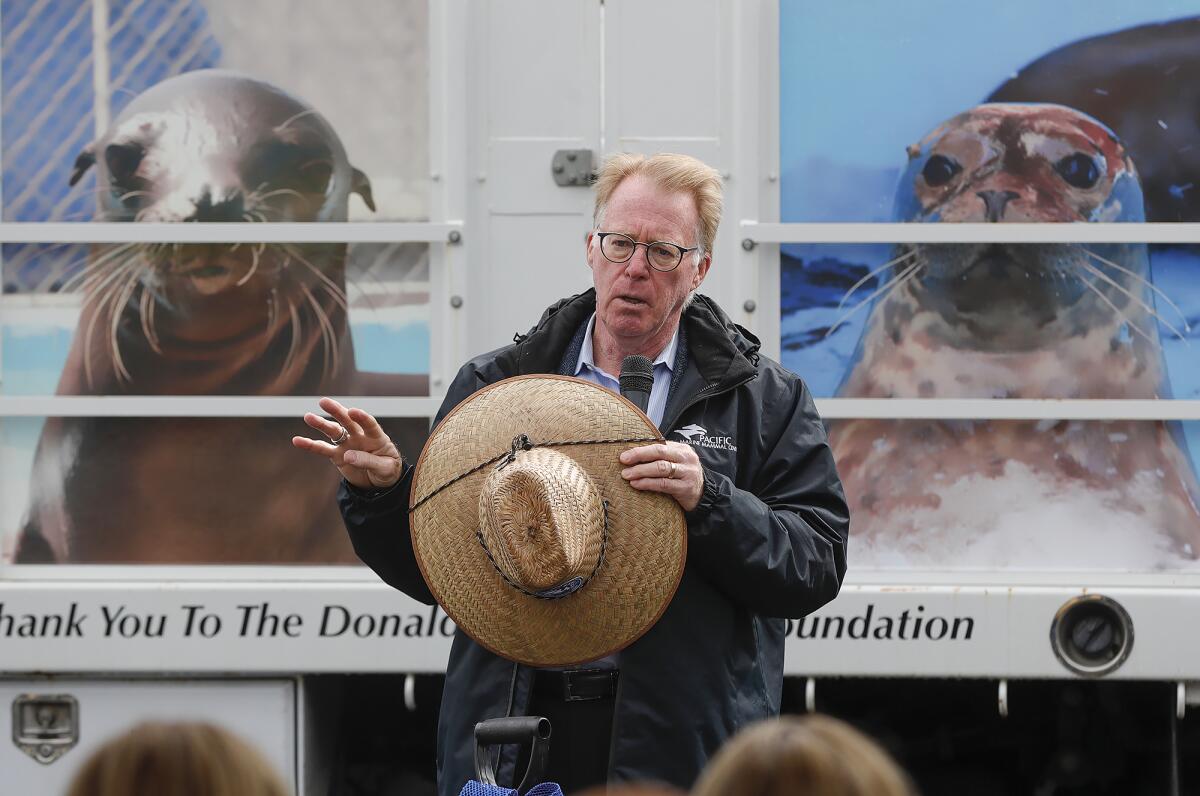
Jeff Meberg, chairman of the board for Pacific Marine Mammal Center, admits that the project may not be economical, but it is furtherance of the center practicing what it preaches.
“I was asked by [the] Planning Commission, ‘How much did this cost?’” Meberg said. “I said, ‘It’s going to be $10 to 15 million.’ They said, ‘Is this a good investment?’ And I said, ‘No, it’s lousy, but we’ll get a return on our investment in probably 50 years.’
“But is it the right thing to do? We’re an environmental company. It’s not just saving seals. It’s about being ocean stewards, taking care of our ocean, studying the ocean, studying the water. … It’s a good return. It’s fantastic.”
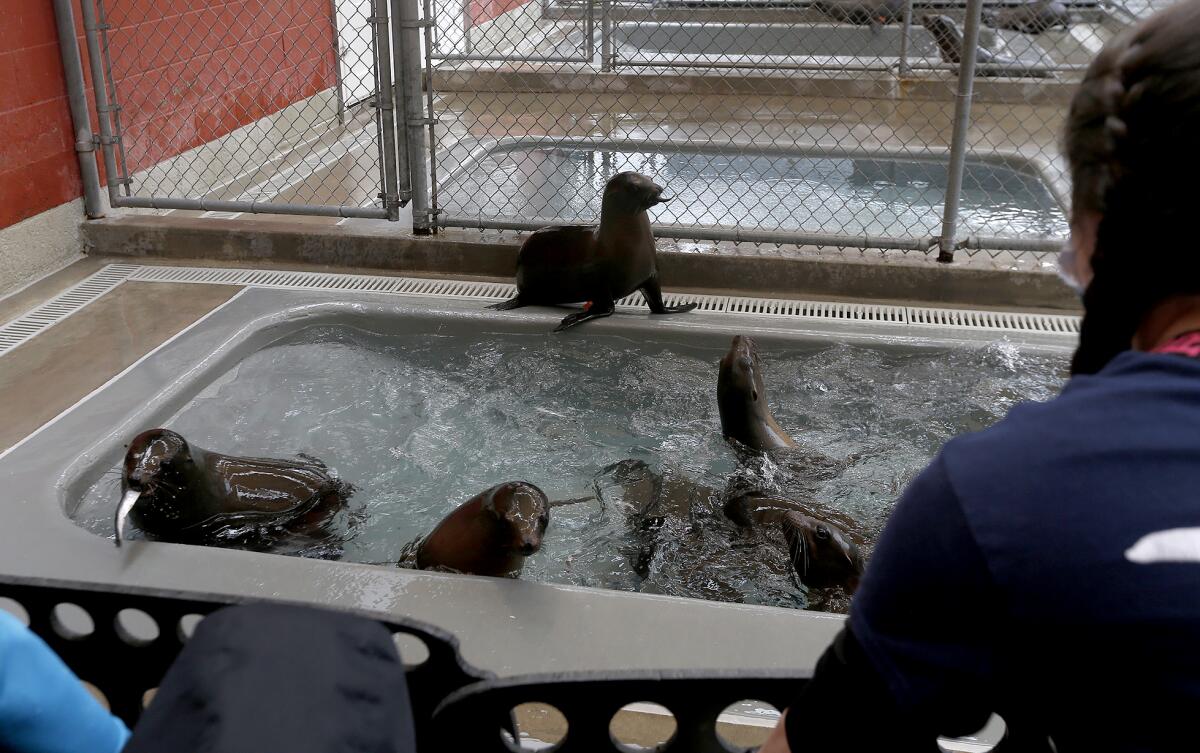
All the latest on Orange County from Orange County.
Get our free TimesOC newsletter.
You may occasionally receive promotional content from the Daily Pilot.
